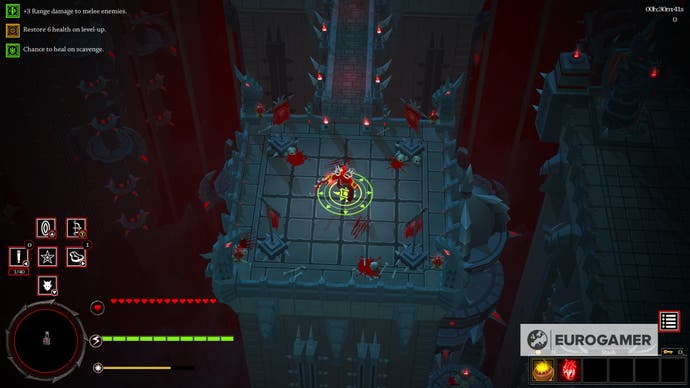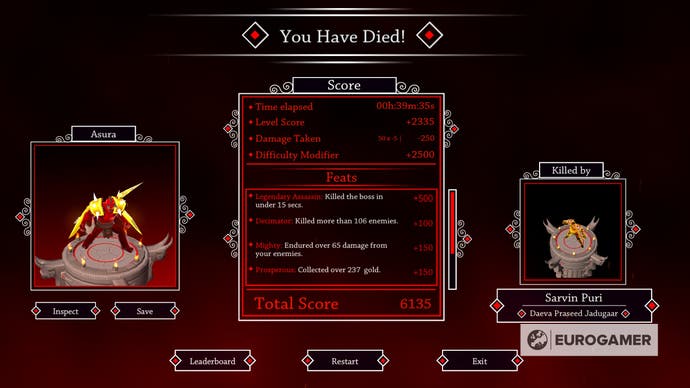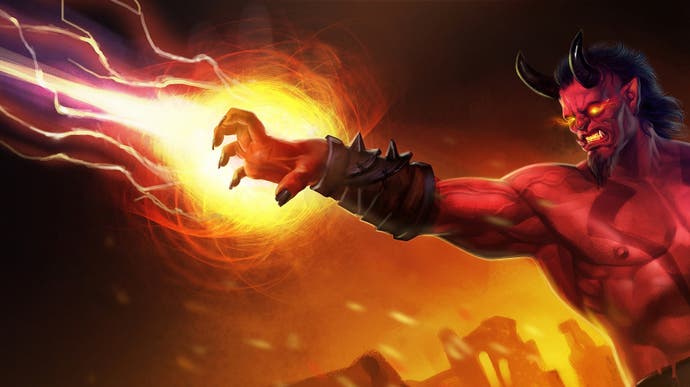Appreciating the deceptive simplicity of Roguelite Asura
Hades games are good.
I can't think about Asura without thinking about Hades, and it's a bit unfair because Asura predates Hades, and everyone loves Hades. But they are undeniably similar. They're both action-RPG-styled Roguelites. They're both about being a kind of god and fighting other gods. But they're also different.
The most obvious difference being Asura is based upon Indian mythology, whereas Hades is rooted in Greek mythology. This means it's to Hindu epics that Indian developer Ogre Head turns, pulling from the pages supernatural beings and entities for your demon-spawn-hero to take revenge upon. And this non-Western perspective is refreshing, promoting a slightly different kind of power-ideal that's rooted in things like chakras and shastras, and adorned with different weapons like frisbee chakrams and claw mittens and blades-on-wrists.
But the differences continue in how the game plays too. I think of Hades as being a bit like pinball. There's a lot going on when you're in the thick of it. Lights flash and colours fly, and numbers pop off all over the place as the level erupts around you. It's actually quite a skill to keep track of Zagreus in amongst it. And of course it's wonderful fun.
Asura, on the other hand, is simpler. There are fewer systems and less flashiness. And yes, part of this is to do with the game being a bit older (2017) and from a less established team. But because of that simplicity, there's a leanness and a precision to playing it.
You can't do as much, which means you have to be careful with what you can do. Really, all you can do is run around, dodge, and either ranged-attack or melee-attack (and these do more damage if you hit enemies using the opposing type of attack). You do unlock spells and powers but it's a slow process. And while this may sound terribly simple, it focuses the skill more squarely on giving enemies the run-around while watching for windows of opportunity to open up. It's not always easy, believe me.
Another key consideration is character-building. Equipment is pretty much the only thing that determines your attributes, including fundamentally important ones like health and stamina. If you want to have more than a few hearts of health, you need equipment with health on it. And equipment can easily break. If you burn at any point, and let a small timer run out, a random piece of equipment will break, and you will lose all the benefits of it. Suddenly, a large chunk of health can disappear, so equipment is incredibly important.
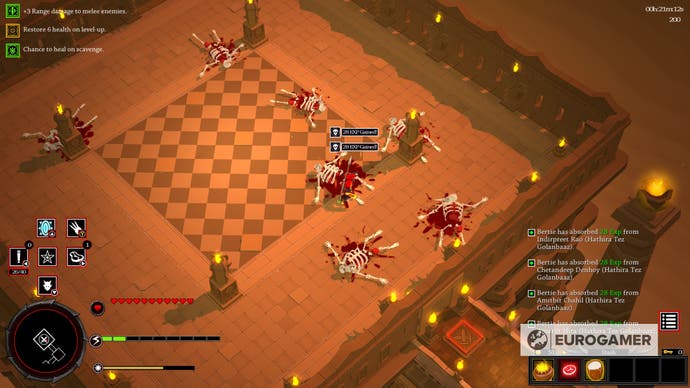
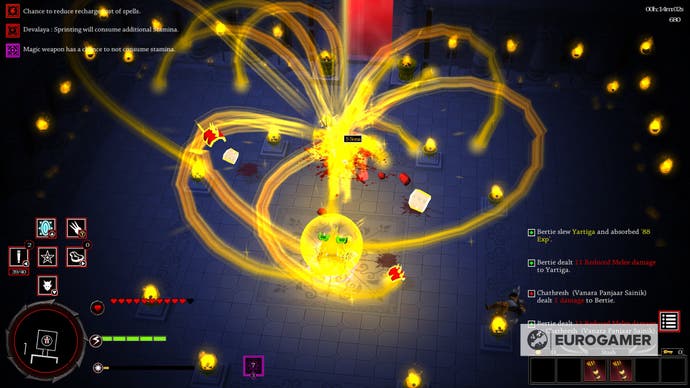
Because of this, the choice of what to do to a fallen enemy - salvage them or absorb them (in a gory splatter) - becomes important. Absorbing earns you experience which goes towards unlocking new powers, which is obviously a good thing, but salvaging is how you earn money and loot, which you'll want. Loot can be equipment or health-restoring meat or arrows - all very useful things depending on your situation. Money, meanwhile, is always useful. It's the lifeblood of the game, really, and what you'll use to forge new equipment and buy things from shops. So what do you get, the XP or the loot? I quite like the choice!
So unfolds a game that's more than it looks. A game of few decisions but important ones, and a game of concentration, nerve - to some degree - and a bit of skill. It's disarmingly compelling, I promise you.
